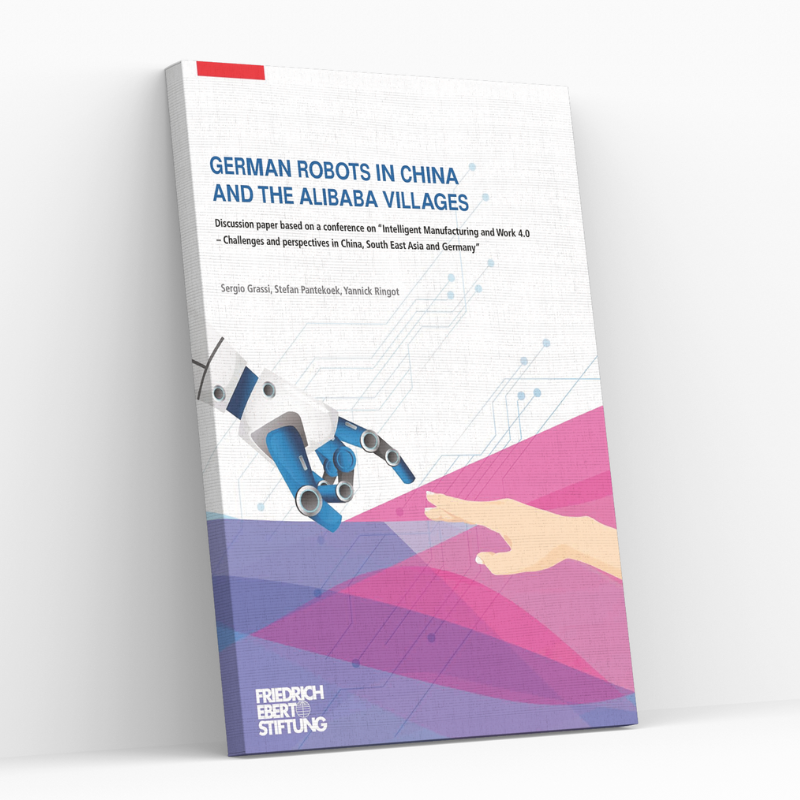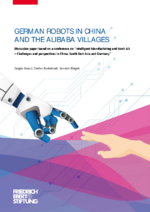[EN] German Robots in China and the Alibaba Villages
The ongoing global technology-driven industrial and platform-based revolution has been variously labelled as Industry 4.0, Intelligent Manufacturing, digitalization, automation and robotization as well as e-commercialization of the economy, or simply the fourth industrial revolution. While China is waging a massive national effort in this field, promoted under the complementary strategies “Made in China 2025” and “Internet+”, Southeast Asian nations have initiated broad debates about the digitalization of the economy as well. The German concept of “Industrie 4.0” has become a common reference point for these efforts even if they differ in substantial ways from one another.
Besides the impact of the staggering technological advances of the past two decades, the economic model of export-led growth – seen by many developing countries as the quickest way to attract FDI and boost their economies – might be severely weakened in times of automation, reshoring, looming trade wars and increasing protectionism around the world. Furthermore, the comparative advantages of many developing countries such as cheap labour are shrinking due to ageing populations, rising wages and companies shifting towards more automated and efficient modes of production. For a specific country the impact of the current technological revolution will depend among others on its position within global value chains; the presence of adequate infrastructure; industrial policies/ relations; labour market policies; education, qualification, and training policies; population ageing; regional as well as international coordination and cooperation.
What can already be observed however is the emergence of a new form of capitalism, in some countries increasingly independent of human labour and unconstrained by geography relying instead to a greater degree on a few highly trained employees. Also quite clear is that there will be a severe impact on global value chains in certain sectors and on the competitiveness of countries and entire industries with consequences for labour markets, job profiles, the needed skills and qualification, social security, labour laws and regulations. Few would dispute that technology has, throughout history, altered the nature of work. But today, the pace of technological change and innovation is unprecedented. The future of work has started now! An in-depth analysis of the implications of the digital economy on labour markets and sectors of employment is a necessary precondition to develop appropriate strategies.
This discussion paper is based on the topics debated during the conference: Intelligent Manufacturing and Work 4.0 – Challenges and Perspectives in China, Southeast Asia and Germany, which took place from June 12–15 2018. The conference was organised by the Shanghai Representative Office of Friedrich-Ebert-Stiftung (FES) and Sun Yat-sen University (SYSU) and was hosted by the Robotation Academy in Foshan, a city in the Pearl River Delta in Southern China with a high concentration of manufacturing industry that strives to become the top place for intelligent manufacturing and robot production in the world.
Grassi, Sergio; Pantekoek, Stefan; Ringot, Yannick
German robots in China and the Alibaba villages
Jakarta, 2018
Download publication (430 KB, PDF-File)
Friedrich-Ebert-Stiftung
Indonesia Office
Jl. Kemang Selatan II No. 2A
Jakarta Selatan 12730
Indonesia




